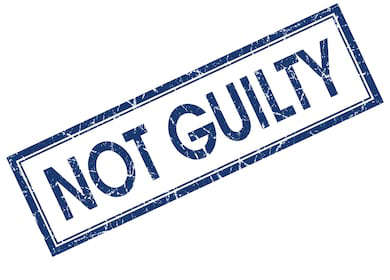My success in life, however modest that may be, did not come at the cost of anyone else’s failure, regardless of their skin color. Life and success in America today is not a zero sum game where for some to win some others must necessarily lose.

If “white privilege” played any part in that success it was because the culture that I grew up in valued education, hard work, and respect for authority. Probably most importantly the culture that I grew up in did not give me any excuses for my own personal failures.
Anyone in America, regardless of their skin color, can enjoy the benefits of “white privilege” if they are willing to “act white.” When I say “act white” I mean that a person needs to seek an education that gives them valuable skills, be prepared to work hard, respect the rights of others, and expect some setbacks and difficulties in life as a matter of course.

There is no systemic or institutional racism that gave me an advantage over an equally qualified black. In fact in the modern world many companies will discriminate against me because I am a white male in favor of a less qualified blacks in order to meet quotas for “diversity” in the workplace. Often today in the 21st century not being a white male gives one a distinct advantage, other things being equal.
However if a black sees education as “acting white” and somehow treason to his or her race, if a black refuses to learn to speak in a mainstream American dialect, and especially if a black literally radiates hatred and resentment to the world, then it should not be a big surprise that he or she might face some serious difficulties in life.
In modern America systemic racism” (racism built into our laws, institutions, and culture) is an illusion. It may be a comfirming illusion for some, but it still an illusion.
I fully understand that in the living memory of some today – myself included – there were significant barriers – clearly systemic racism – for blacks to overcome, particularly in the South.

What we need to understand though is that those barriers are not the reality of today. Black author John McWhorter writes:
“There was a time when fighting and decrying institutional racism was the main task at hand, and blacks of my generation owe a debt of gratitude to those who did it; our comfortable lives would be impossible without their efforts. Today, though, these people are well-intentioned relics of another era, an era they in their moment helped us to get past. Our main concern must be with new generations, who can fulfill their potential only in an America where victimology, separatism, and anti-intellectualism don’t flourish among black Americans.”
What’s Holding Blacks Back?
The sub-title of the article by John McWhorter quoted above is:
“It’s black attitudes, not white racism, that’s to blame.”
You should click on the above link to Mr. McWhorters article. It will be worth your time to read.
There are certainly some things in my life that I feel some guilt about, but mistreating black people is not one of them. I see no genuine reason why I should feel personal guilt for racism.
What I do feel, and feel genuinely, is sympathy. Life would be a lot better for everyone in America today if blacks would stop focusing on the worst parts of the past, and instead decided to accept the invitation of the greater part of America to be part of us, to be part of America, and to be proud of that as we all have a right to be.
Maybe black folks shouldn’t focus so much on slavery – that is long gone and there is no one alive today that bears any responsibility for that (and if you want the whole truth there were free black and Native American slaveowners too).
If black folks need heroes then look at the black fighter pilots in World War 2, the Tuskegee Airmen, who risked their lives to protect American bombers crewed by white airmen.

That is the black history that ought to be emphasized.
If black folks needs heroes look to Martin Luther King. Jr. and the non-violent movement he led to remind Americans of the real principles America was founded on.
This will be the day when all of God’s children will be able to sing with a new meaning, “My country, ‘tis of thee, sweet land of liberty, of thee I sing. Land where my fathers died, land of the pilgrim’s pride, from every mountainside, let freedom ring.
I Have a Dream, Martin Luther King Jr.

He also wrote:
I have a dream that my four little children will one day live in a nation where they will not be judged by the color of their skin but by the content of their character.
I Have a Dream, Martin Luther King Jr.